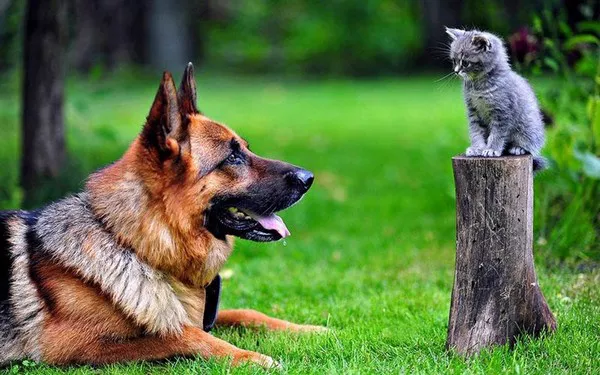Introduction
German Shepherds are one of the most popular dog breeds in the world, and for good reason. They are intelligent, loyal, and easy to train. However, like any puppy, German Shepherds need to be properly trained from a young age in order to be well-behaved adults.
This article will provide you with a comprehensive guide to training your German Shepherd puppy. We will cover everything from basic obedience commands to more advanced training, such as agility and Schutzhund. We will also discuss some of the unique challenges that come with training a German Shepherd puppy.
The Importance of Early Training
The most important thing to remember when training your German Shepherd puppy is to start early. Puppies are like sponges and they are capable of learning a great deal at a young age. If you wait until your puppy is older to start training, it will be much more difficult.
There are a few reasons why early training is so important. First, puppies are more impressionable when they are young. They are more likely to accept your commands and to learn new behaviors. Second, early training helps to establish a bond between you and your puppy. When you work with your puppy on a regular basis, you are sending the message that you are a leader and that they can trust you. This will help to create a well-behaved and obedient adult dog.
Basic Obedience Commands
Every German Shepherd puppy should know the basic obedience commands, such as sit, stay, down, come, and heel. These commands are essential for keeping your puppy safe and under control.
The best way to teach your puppy these commands is to use positive reinforcement. This means rewarding your puppy with praise, treats, or toys when they obey your commands. It is important to be consistent with your training and to keep your sessions short and fun.
Once your puppy has mastered the basic obedience commands, you can start to move on to more advanced training.
Advanced Training
There are many different types of advanced training that you can do with your German Shepherd puppy. Some popular options include agility, Schutzhund, and tracking.
Agility is a sport that tests a dog’s speed, agility, and obedience. In agility, dogs must run through a series of obstacles, such as jumps, tunnels, and weave poles.
Schutzhund is a German sport that tests a dog’s tracking, obedience, and protection skills. In Schutzhund, dogs must track a human scent, obey commands in a variety of situations, and defend their handler from an attacker.
Tracking is a type of search and rescue training. In tracking, dogs are trained to follow a human scent. This can be used to find lost people or to track down criminals.
Unique Challenges
German Shepherd puppies are known for their intelligence and energy. However, these same qualities can also lead to some unique challenges when it comes to training.
One of the biggest challenges of training a German Shepherd puppy is their high energy level. German Shepherds need a lot of exercise, and if they don’t get enough, they can become destructive. It is important to make sure that your puppy gets plenty of exercise on a regular basis.
Another challenge of training a German Shepherd puppy is their intelligence. German Shepherds are very smart dogs, and they can sometimes get bored with simple commands. It is important to keep your training sessions interesting and challenging.
Conclusion
Training your German Shepherd puppy can be a lot of work, but it is also a lot of fun. With patience and consistency, you can train your puppy to be a well-behaved and obedient companion.
Here are some additional tips for training your German Shepherd puppy:
Be positive and upbeat during training sessions.
Use short, frequent training sessions.
End each training session on a positive note.
Be consistent with your commands and expectations.
Don’t give up! Training your puppy takes time and patience.
With hard work and dedication, you can train your German Shepherd puppy to be a wonderful companion.


